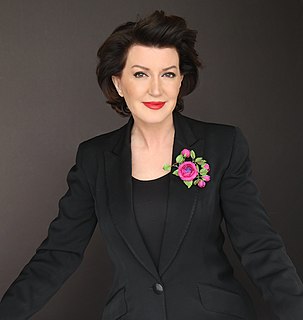A Quote by Louise Hay
Related Quotes
You know, Hillary Clinton's out there saying, we need smart diplomacy. We need to do smart power. And that means empathizing with our enemy, understanding their grievances, like we understand the grievances of homosexuals, like we understand the grievances of African-Americans. We must learn to understand the grievances of ISIS.
Comedy is grievances. It's a recitation of grievances - whether they're inconsequential, superficial - like "my wife shops too much", or "kids today", all those old-fashioned themes - or, if it's deeper, and somewhat more thoughtful, about social imbalance and inequities, and the folly of human behavior. It's usually a complaint.
When you talk about your troubles, your ailments, your diseases, your hurts, you give longer life to what makes you unhappy. Talking about your grievances merely adds to those grievances. Give recognition only to what you desire. Think and talk only about the good things that add to your enjoyment of your work and life. If you don't talk about your grievances, you'll be delighted to find them disappearing quickly.
It will be hard for you not to ask why this must be. God knows why, and that may be as good to us as though we knew a thousand reasons. I pray God to hold you quiet and patient and uncomplaining, and help you bear the weight of this seemingly unintelligible sorrow. I hope you will remember that this is the only world in which a Christian can suffer, and suffer patiently and meekly. We cannot suffer by and by. God helps us to glorify Him now, when we can.


































